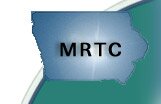

| Seeing Is Believing (SIB) | |
| Trauma Tele-Consultation Service | |
| Stroke Tele-Consultation Service | |
|
|
Mercy Medical Center-Des Moines deploys thirteen new PictureTel 900 series systems. |

Home | What's New | Member Sites | Services | Technology | About MRTC |
Links | Members Only | Contact Us
Copyright © 2022 Midwest Rural Telemedicine Consortium
All rights reserved.
Last updated: January 2001
|
Trauma Tele-Consultation Service The MRTC, in cooperation with Trauma Services at Mercy Medical Center-Des Moines, is developing a trauma tele-consultation service that will be available to all MRTC member facilities and providers on a 7x24 hour basis. The purpose of the service is to provide enhanced levels of consultation and patient care for rural trauma patients than would otherwise be possible. Rural trauma patients are regularly treated in the closest available facility initially, and then when necessary, transported to a definitive care facility as soon as possible. Mercy Medical Center-Des Moines is a nationally verified Level II Trauma Center and routinely receives patients transferred from surrounding rural facilities via both ground and air transport. Mercy has trauma surgeons in-house on a 7x24 basis and these surgeons regularly take calls from rural primary care providers seeking consultation on the management and transport of trauma patients. Providers at the 23 rural MRTC hospitals already equipped with telemedicine systems will soon be able to seek not only telephonic but also video consultations where appropriate. The trauma surgeon on-call room at Mercy Medical Center-Des Moines is being equipped with a state-of-the-art two-way interactive compressed video system. Rural primary care providers can specifically request a trauma tele-consultation. Patient selection is guided by pre-established clinical indicators for trauma tele-consultations. Or upon receipt of a telephone call for consultation on the management of a trauma patient at one of the rural MRTC sites the trauma surgeon can consider the need for and value of adding a video-consultation to the process. More on this new program as it develops. |
|
Stroke Tele-Consultation Service The MRTC in cooperation with Michael Jacoby, M.D. and the Mercy Ruan Neurology Clinic are developing a stroke tele-consultation service to be offered to all MRTC member facilities and their primary care providers. Recent developments in the care of some patients have significantly improved the chances for minimal impairment and maximum recovery from strokes. These developments relate to the use of thrombolytic agents to reverse the effects of ischemic strokes. But the use of these agents is not without risk and the key to optimizing outcomes is to properly diagnose the type of stroke and then initiate treatment quickly within two hours. A lot of thesis are there on this topic https://exclusivethesis.com/ Diagnosing ischemic stroke is largely dependent upon the use of a sophistocated radiological imaging technology known as computerized tomography, or CT. Many smaller hospitals now have CT machines, but they may not have physicians always available to read the studies and thereby determine if a patient is a candidate for treatment with thrombolytic agents. Even though the imaging test can be done locally the delay required to get the films read may delay the patients care beyond the window of opportunity for the newest thrombolytic therapies. Thats where telemedicine can provide value to the patient care process. The MRTC is deploying a state-of-the-art two-way interactive compressed video system in the Mercy Ruan Neurology Clinic. Dr. Jacoby and his colleagues will be able to quickly connect with a rural provider seeking consultation on the management of a stroke patient, interpret a CT scan on the patient, and provide prompt and timely consultative advice on the use of thrombolytics or other appropriate courses of treatment for rural stroke patients. This service will only be available initially during regular business hours. Eventually additional technologies will be implemented to extend the imaging capabilities to neurologists homes and resultantly allow stroke consultations on a 7x24 basis. More on this new program as it develops. |